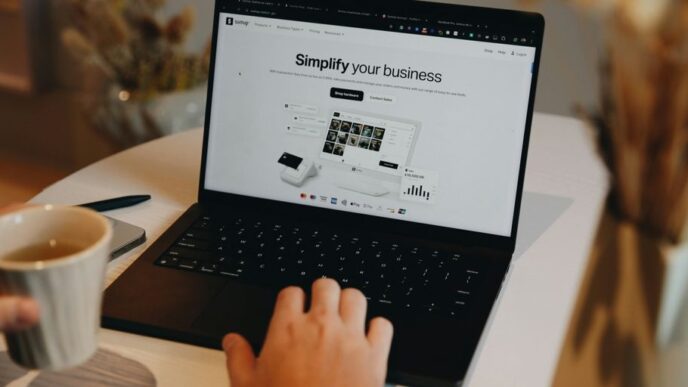Imagine working in an office with the constant ring of telephones and clatter of typewriters in the 1990s. Now, cut to the workplace of 2024—a seamless integration of virtual meetings, AI-powered productivity tools and cloud-based collaboration. Technology has not only disrupted the way we work; it has fundamentally reimagined workplaces, exemplifying greater automation, productivity and collaboration. From bulky desktops giving way to sleek, lightweight laptops, technology has come a long way. This article delves into how technology has reshaped workplaces and provided various benefits to employees and employers. Here’s how technology has emerged as a formidable enabler for modern workspaces:
Implementing hybrid and flexible work: Technology has facilitated the implementation of hybrid and flexible work models. The use of new-age technologies like cloud-based productivity suites such as Microsoft 365 and Google Workspace allow seamless collaboration across teams and geographies. Similarly, Virtual Private Networks (VPN) and secure desktop solutions allow employees to access resources from home without compromising the security of official systems. In the same way, video conferencing tools such as Zoom, Microsoft Teams and Google Meet facilitate seamless team meetings, irrespective of geographical location.
Streamlining operations and boosting productivity: The use of technology has automated certain manual tasks, thereby increasing speed, minimising chances of errors and simplifying tasks. This automation has enabled employees to focus on their core function, manage their work schedules better and collaborate effectively. This has not only streamlined operations but also boosted the productivity of the workforce.
Fostering collaboration across geographies: Digital communication technology has revolutionised how employees interact and exchange information. Slack and Microsoft Teams have become powerful communication tools integrating instant messaging, file sharing, and virtual calls. Cloud-based storage and file-sharing solutions such as Dropbox, WeTransfer and Google have made it easy to access files from anywhere and fostered collaboration among employees. Moreover, digital whiteboards like Miro and MURAL allow employees to ideate and brainstorm together, regardless of location. These tools underscore the importance of technology in overcoming geographical barriers and ensuring a smooth flow of operations across departments.
Optimising office layouts and reducing costs: Space management apps and tools have become crucial to hybrid and flexible work models. These technologies help optimise office layouts, automate desk bookings and track space utilisation. Furthermore, modern sensor technologies and the Internet of Things have made possible to monitor occupancy levels, adjust lighting and temperature based on usage and assist in contact tracing. This has enabled the saving of time and resources and positively impacted the productivity of employees. Smartworks, an office experience and managed campus platform, leverages several technologies, including its technology platform – BuildX, which leads to faster project delivery time.
Providing analytics for insights: Data-driven insights have enabled businesses to make more informed decisions and tailor their business strategy in line with these insights. For instance, business intelligence platforms such as Power BI and Tableau have made it easier for non-technical personnel to visualise and interpret complex data. Similarly, advanced analytics and machine learning algorithms help predict trends, mitigate risks and fast-track the achievement of business goals.
Fostering superior employee experience: Workplace experience software has evolved into a one-stop platform to meet various employees’ needs. From booking meeting rooms to placing an order for food, they have enabled on-the-go access to various amenities. With organisations increasingly prioritising employee engagement, such software will play a pivotal role in offering superior experience to employees, which positively affects their productivity and well-being. For instance, Smartworks’ app enables employees to book meeting rooms, order meals from cafe and shop from convenience stores in one click.
Aiding sustainability: With environmental concerns taking centre stage, workplace technology is playing a pivotal role in aiding organisations to achieve their sustainability goals. Smart building management systems optimise energy usage, while AI-powered analytics help companies track their carbon footprint and take appropriate steps for mitigation. Office experience platforms like Smartworks have taken several steps to adopt sustainability, such as installing aerators to monitor tap water usage, reducing the use of paper by replacing tissues with hand dryers and monitoring the generation of energy, water, and waste.
Technology has drastically changed how employees work, interact and collaborate, improving productivity and business outcomes. Nevertheless, the successful adoption of technology goes beyond merely deploying tools; it requires fostering a culture of digital transformation and learning. As technology evolves, businesses must stay ahead of trends and embrace them. However, data privacy, cybersecurity and holistic wellness must be addressed to reap the benefits of futuristic tech-enabled workspaces.












